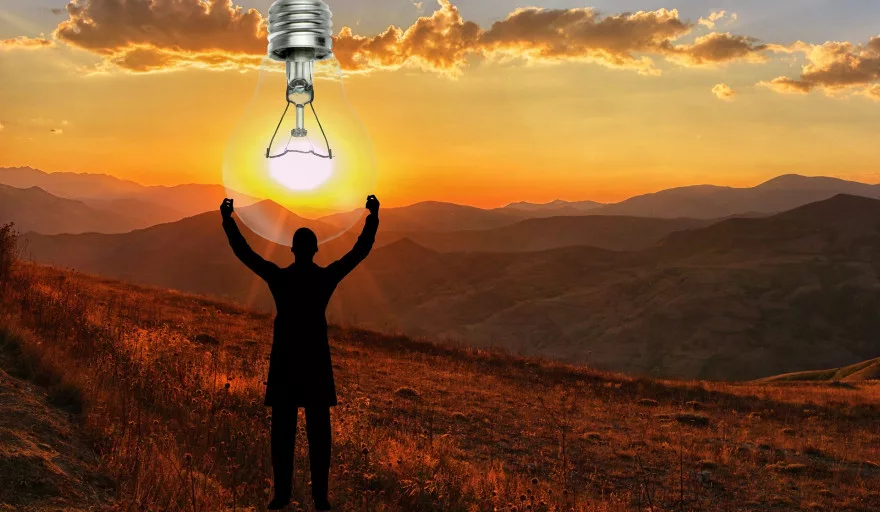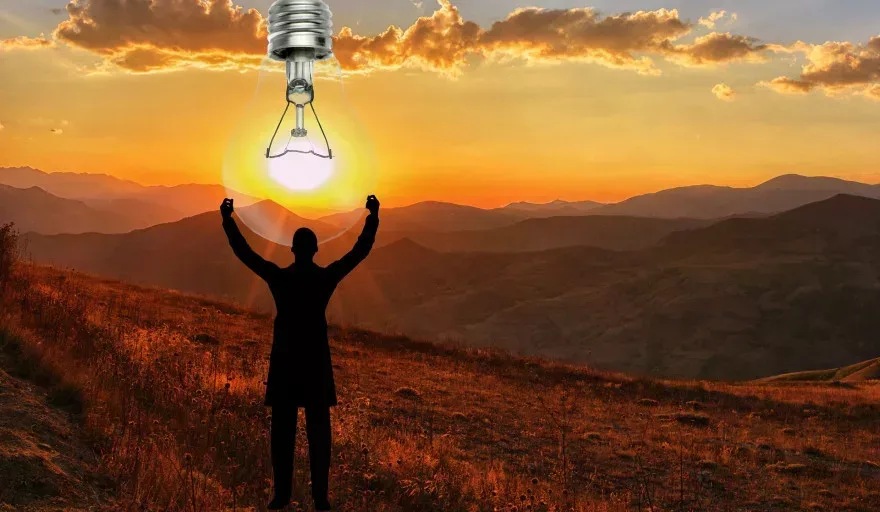
Off-grid solar and fintech have been tipped to provide the long-term, sustainable solution to powering the African continent and connecting millions of citizens to the digital economy
Writer: Tom Wadlow
Africa’s electricity grids are struggling.
Writer: Tom Wadlow
Africa’s electricity grids are struggling.
The World Bank predicts that 600 million African citizens have no access to power, a figure which, unless drastic action is taken, will only continue to rise given the region’s population is growing at a rate of around 30 million people a year.
And the simple truth, according to figures from International Energy Agency (IEA), is that electricity supply is not keeping up with demand.
Over the last 30 years, consumption has grown at an average of 8.4 percent per year while supply has lagged behind at 6.1 percent, meaning that those who are connected to the grid face inadequate provision, with over half of African households not even connected at all.
Consumers are therefore turning to off-grid means of powering their homes and livelihoods.
In Nigeria, for example, it is estimated that the likes of diesel generators are providing up to four times the energy delivered through the national grid. Many households in Lagos, it is noted, actually have two generators, the second providing emergency backup if the first breaks down.
Meanwhile, in rural areas, it is prohibitively expensive to be connected to national grids due to the high costs associated with extending transmission lines and difficulties faced recouping fees because of a lack of adequate financial services.
These insights come from the Transformational Tech series of reports by Kleos Advisory, the first of which providing a convincing case for developing off-grid infrastructure to plug the gaping gaps in electricity provision across Africa.
Solar is hotting up
Harnessing the power of the sun is widely acknowledged as being the most effective and sustainable way of bringing off-grid energy to the masses.
The numbers, albeit small, are growing.
While solar and wind between them accounted for just 0.8 percent of African energy production in 2017, with oil, gas and coal providing over half, the balance of power does appear to be changing. Between 1990 and 2020, solar output has grown by a factor of 20 to an estimated 6,090 kilotonnes of oil equivalent.
Kleos Advisory’s report observes: “Despite being a very young industry, Africa’s solar power sector already has a high degree of segmentation and diversification.
“Some companies are focused on large-scale production to replace grid power. Others are leveraging solar’s ability to connect African households to their own private power supply and to sell them an array of goods and services that are enabled by access to electricity.”
The study pays particular attention to pay-as-you-go (PayGo) home solar systems, of which five million are estimated to have been sold in the past five years.
These are far superior to the first wave of solar generation units that entered the market in the 1990s, such devices tarnishing solar’s reputation as they were difficult to maintain and often arrived without the required level of customer support.
Today’s systems are more efficient and automated, some fitted with smart software that analyses levels of power received to ensure a consistent supply of electricity at all times.
They can also power far more devices than their predecessors – by the mid-2020s, affordable home solar systems are expected to power everything from mobile phones and TVs to fans, lights and the internet, leaving just high-power items like washing machines to be used via something like a diesel generator.
Powered by fintech
However, the critical breakthrough, according to Kleos, is the ability for these solar units to connect to the world of digital finance and payments services.
The PayGo model enables African consumers to buy a solar unit on a rent-to-own basis, with repayments made via mobile costing no more than what it would to charge their phones and buy kerosene for lighting.
“In as little as 18 months users can own their solar unit outright, and in the process build their own credit history,” the Kleos report claims. “This can be leveraged to purchase upgrades and electronic devices powered by the solar unit (e.g. widescreen TVs, set-top boxes and fans) and to give them access to financial services, including mobile banking and insurance.”
Crucially, the system does not require government resources, with the majority of consumers paying for the power themselves.
This also leads to another liberating benefit, which is free power. Once PayGo customers have paid off the cost of their solar units, they can enjoy cost-free electricity for the remainder of the battery life, which is typically at least 10 to 12 years. As battery technology improves, this will only increase.
Having crunched the numbers, Kleos and its research partner Azuri Technologies believe the opportunity to be worth some $24 billion per year.
This is based on an average annual household spend of $200 on energy and there being 120 million homes without power, the figure likely to be even higher as it does not factor in additional services that can be leveraged over the solar-fintech platform.
A Q&A with GOGLA
GOGLA represents the interests of more than 170 companies engaged in the off-grid solar industry, including the likes of EDF and Total.
I asked Koen Peters, the association’s Executive Director, about off-grid solar development in Africa.
Q: Why, in your opinion, is off-grid solar a viable solution to solving the power crunch in Africa?
A: “It’s simple – because it’s working. Our industry has improved access to clean and reliable energy for 280 million people globally in the last decade alone. Many of the sector’s customers live in rural and remote areas across Africa which are unlikely to be reached by the grid for the foreseeable future.
“As companies continue to improve their products and services, solar home systems can now power not only lights, but also radios, TVs, fans and other small household appliances. This makes off-grid solar extremely popular: our recent Powering Opportunity report found that 94 percent of households with a solar home system in East Africa say their quality of life has improved.
“World leaders have the ambitious goal of reaching universal energy access by 2030. For this ambition to become reality, we need proven sustainable energy solutions – and off-grid solar is one of them.”
Q: What is the mood among your membership regarding the development of off-grid solutions in the region? Are they on board with the idea?
A: “Very much so. We see member companies expanding their services, both in terms of product range and geographical reach. Digital technology, innovation and improved business operations have made it possible for the sector to reach millions of additional people.
“The latest models of solar-powered water pumps, for example, allow farmers to enhance crop yields while monitoring groundwater extraction to prevent water reservoirs from running dry. How the off-grid solar market performs in a country or region, however, ultimately depends on numerous factors, including favourable investment flows and an enabling regulatory environment.”
Q: What are some of the challenges that will need to be overcome in order to effectively roll out off-grid solar to African communities?
A: “We need all relevant partners to work together to quickly bring these life-changing products to the people who need them most. This includes the industry, development partners, governments and investors. We see that in countries with a supportive regulatory environment in terms of tax and duty exemptions, like Kenya, a thriving and competitive off-grid solar market has emerged.
“This also helps address another challenge for the sector and customers – affordability. Our member companies offer high-quality products that often come with a range of after-sales services and fair warranties. Many of them have publicly committed to our Consumer Protection Code. In a highly price-sensitive market, quality off-grid solar products offered by responsible companies cannot always compete with generic products. Governments can come in here by supporting quality off-grid solar with tax exemptions and reliable policies and regulation.”






























